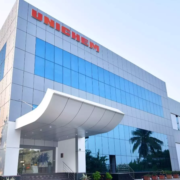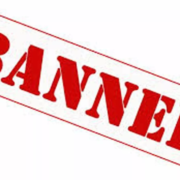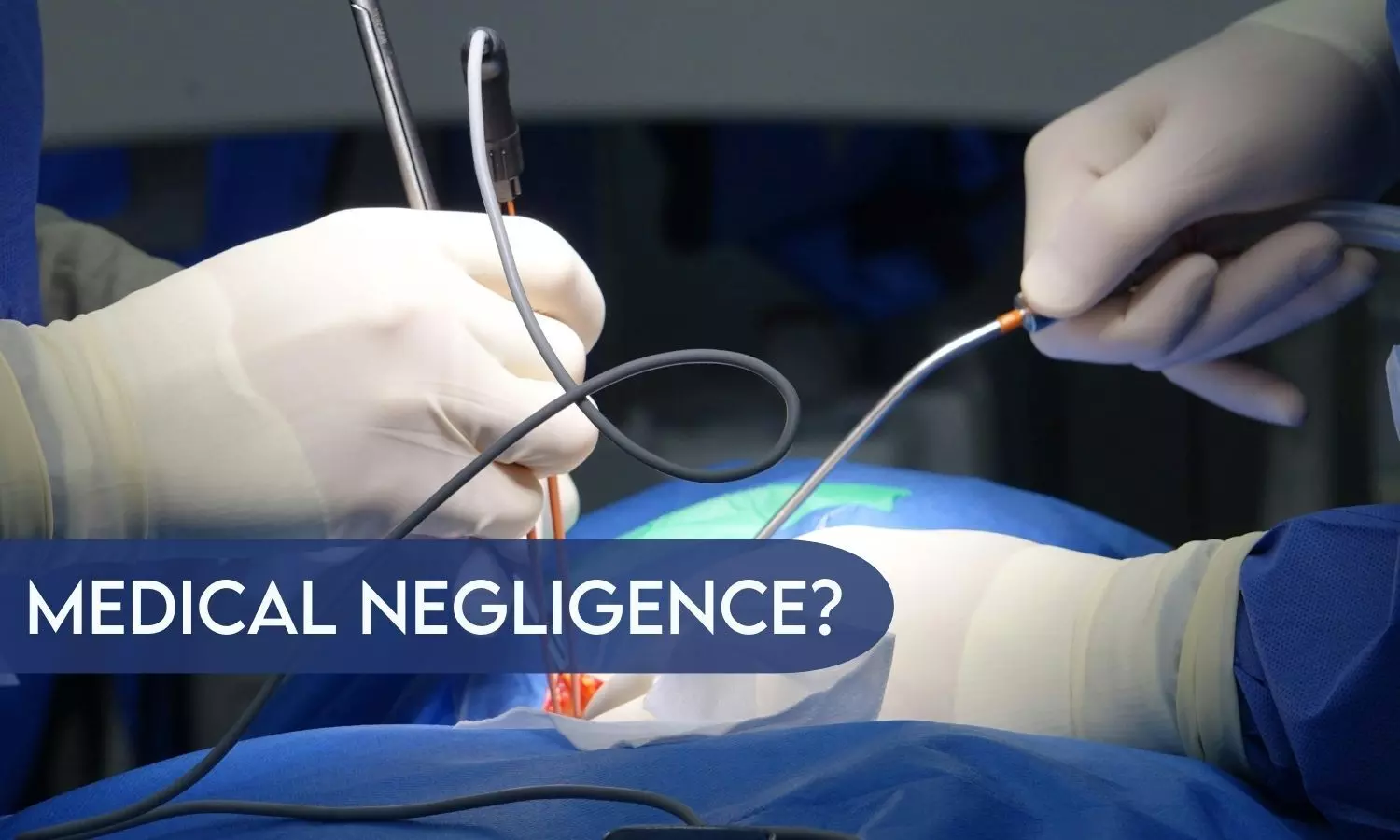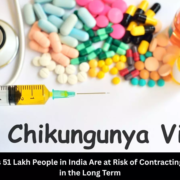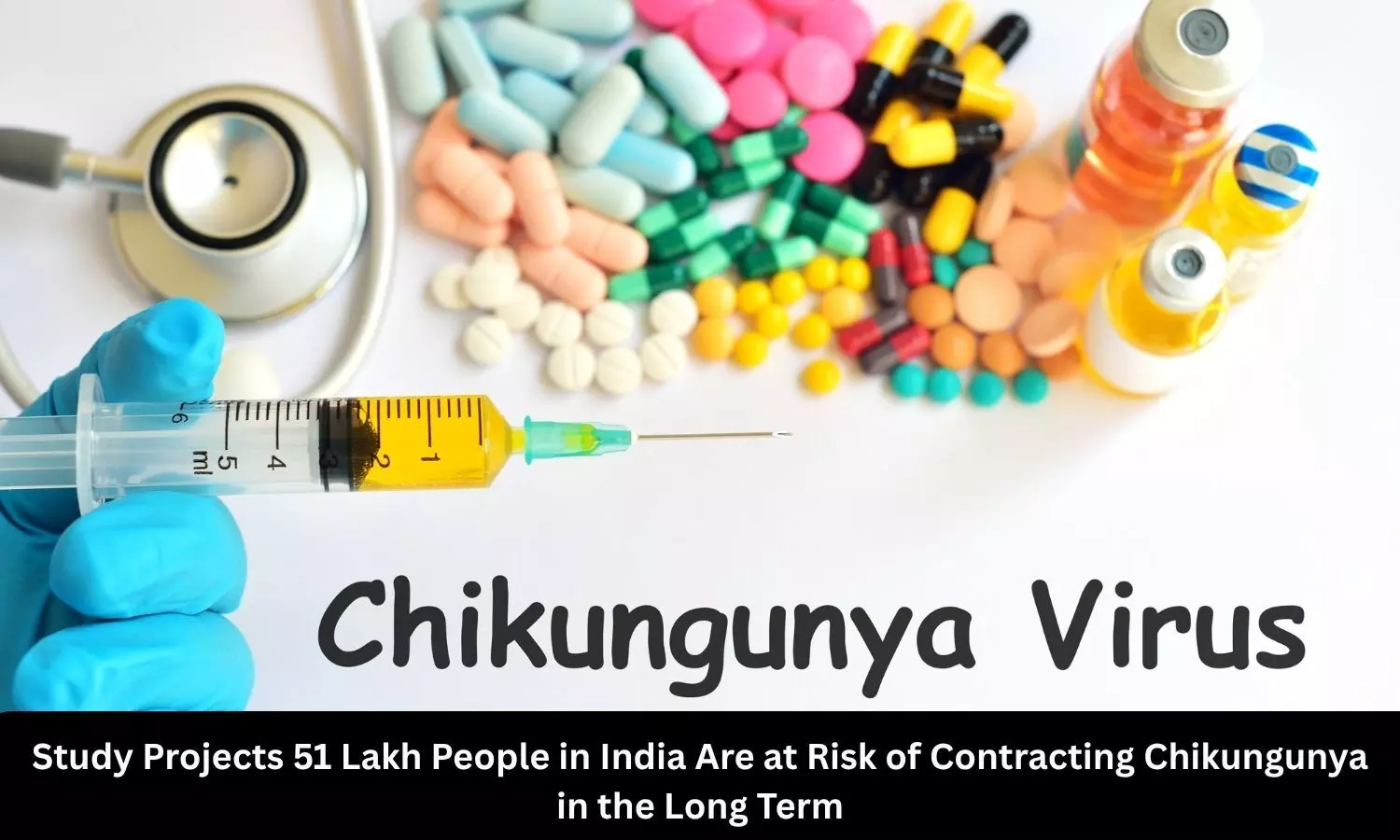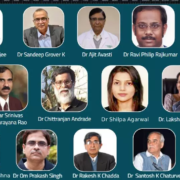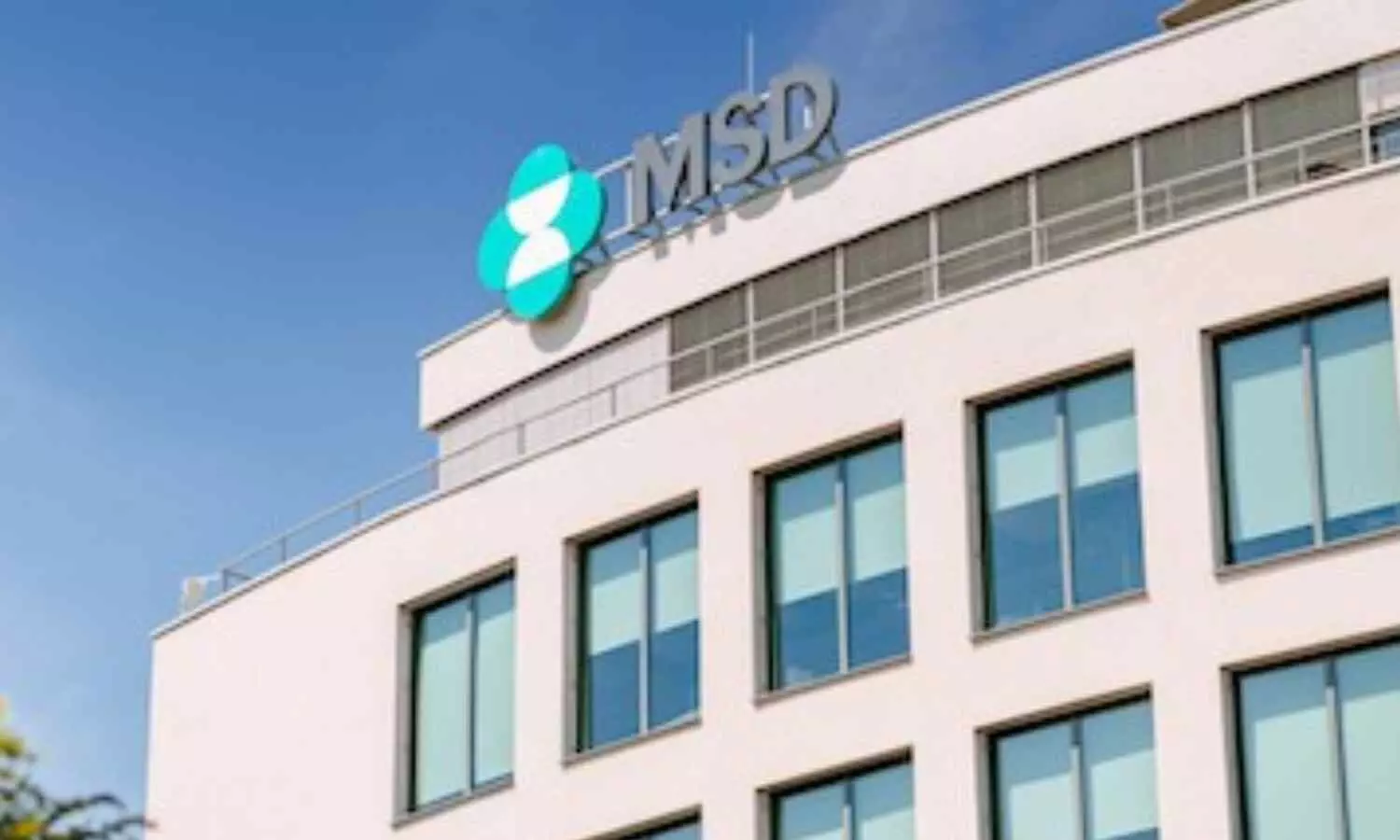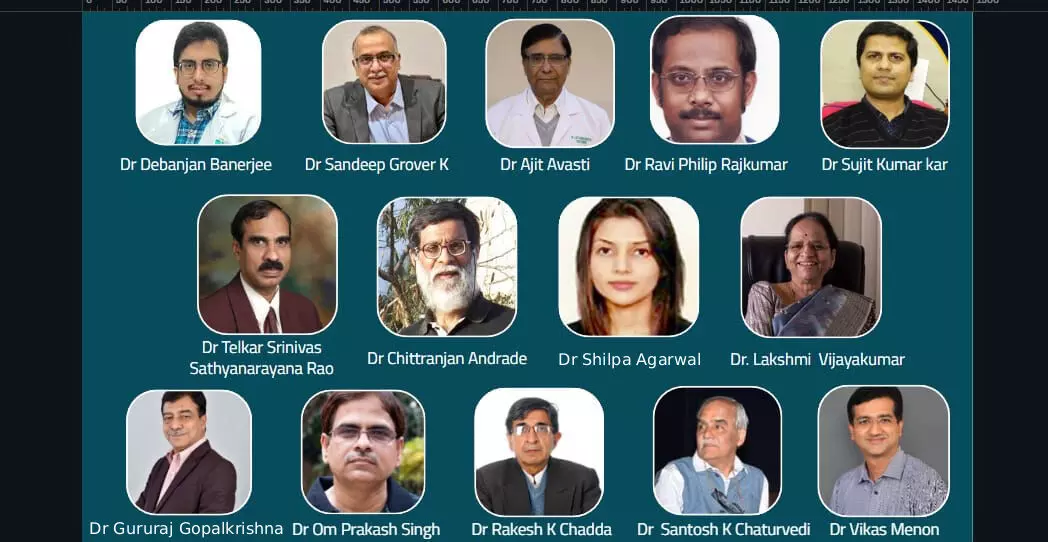
New Delhi: A total of 15 psychiatrists from India’s leading health and medical institutions have been recognised in the Stanford list of the world’s top 2% scientists. The prestigious database, curated by Professor John P.A. Ioannidis of Stanford University in collaboration with the Elsevier Data Repository, acknowledges their pioneering research, clinical excellence, and sustained impact in the field of psychiatry.
Stanford University’s database of top-cited scientists for the year 2025 provides standardised information on citations, h-index, co-authorship-adjusted h-index, citations to papers in different authorship positions, and a composite indicator (c-score). The selection is based on the top 100,000 scientists by c-score (with and without self-citations) or a 2% or above percentile rank in the sub-field.
Below are the details of Indian psychiatrists featured in Stanford University’s list for 2025:
1. Dr Chittaranjan Andrade:
Dr Chittaranjan Andrade, a Senior Professor in the Department of Clinical Psychopharmacology and Neurotoxicology at the National Institute of Mental Health and Neuro Sciences (NIMHANS) in Bengaluru, has over four decades of experience in clinical psychopharmacology, research, and education. His academic achievements began early, with 25 prizes in pre-collegiate education, 4 prizes during college, and 9 gold medals in medical school, including the Best Outgoing Student Award from his university. He stood 4th in Karnataka during his undergraduate education and topped the university in his postgraduate examinations.
Over his prolific career, Dr Andrade has authored 784 publications, with more than 216,000 reads and 14,600 citations. His primary research interests include ketamine, psychopharmacology, electroconvulsive therapy, statistics, and research methodology. In the 2024 Stanford University global database, he was ranked among the top 0.1% of scientists across 174 fields. This year, in the 2025 Stanford list, he has achieved a rank of 881 based on the composite score, excluding self-citations. By the end of 2024, Dr Chittaranjan Andrade’s h-index, excluding self-citations, stands at 16.
He plays an active role in advancing psychiatric education. He serves as Field Editor (Clinical Therapeutics) for Bipolar Disorders and sits on the editorial boards of several leading journals, including the Journal of Clinical Psychiatry, Journal of ECT, Brain Stimulation, and the Indian Journal of Psychiatry, among others. He has guided numerous postgraduate theses and is widely recognized as a dedicated mentor and educator.
In addition, he runs two major academic initiatives: Synergy Times, a thrice-weekly global e-newsletter published since 2001, and e-Journal Club India, launched in 2016 to support postgraduate psychiatry students and faculty in research methodology and academic publishing. Beyond psychiatry, Dr Andrade is a published children’s author, with three books to his name. He is also a columnist and freelance journalist, having written over 800 articles across a range of topics.
2. Dr. Debanjan Banerjee:
Dr. Debanjan Banerjee is a distinguished Consultant Geriatric Psychiatrist at Apollo Hospitals, Kolkata. His work focuses on the psychosocial impact of the COVID-19 pandemic, the psychology of misinformation, media reporting of suicides, and the marginalization of ageing populations.
His journey into psychiatry began with his MBBS from Calcutta National Medical College, followed by a gold medal for his academic excellence. Building on this foundation, he completed his M.D. in Psychiatry from NIMHANS before embarking on a post-doctoral fellowship in Geriatric Psychiatry. His passion for mental health in aging populations led him to specialise in old-age mental health, an area that remains underexplored but is crucial as the global population ages rapidly.
With 139 publications, over 56,578 reads, and 5,668 citations, Dr Banerjee has significantly contributed to the academic literature in social psychiatry and geriatrics. His research interests are wide-ranging, with a particular emphasis on social constructivist approaches, including Interpretative Phenomenological Analysis (IPA), Cognitive Grounded Theory (CGT), and Focus Group Discussions (FGD).
According to the data, he is recognized in the Stanford 2% Scientists list, holding a rank of 20,414 based on the composite score excluding self-citations, and 23,538 when all citations are included. By the end of 2024, his h-index, excluding self-citations, stands at 11, with a total of 485 citations for the year, also excluding self-citations.
He plays an active role in various community programs focused on mental health awareness, stigma reduction, and the training of general physicians. Additionally, he conducts research in social psychology. Apart from these contributions, he serves as the editor for two local magazines based in Kolkata.
3. Dr Sandeep Grover:
Dr Sandeep Grover, a distinguished Professor of Psychiatry, is currently serving in the Department of Psychiatry at the prestigious Post Graduate Institute of Medical Education and Research (PGIMER), Chandigarh.
Dr Grover’s dedication to psychiatric education is evident through his role as a Professor at PGIMER, where he mentors postgraduate students and conducts research.
With over 1,132 publications, Dr. Grover’s research has made significant contributions to the global understanding of psychiatric disorders, their treatment, and their social impact.
He holds a rank of 22,329 in the list based on the composite score excluding self-citations. By the end of 2024, his h-index, excluding self-citations, stands at 13, with a total of 1579 citations for the year, also excluding self-citations.
4. Dr. Lakshmi Sagar Vijayakumar:
As the founder of SNEHA (Suicide Prevention Program) in Chennai, Dr. Vijayakumar has impacted countless lives through her work in the prevention of suicide, offering support to individuals in crisis, and raising awareness about mental health challenges.
She also serves as the Head of the Department of Psychiatry at Voluntary Health Services in Adyar, Chennai. An active member of the World Health Organization’s International Network for Suicide Research and Prevention, Dr. Vijayakumar is an Honorary Associate Professor at the University of Melbourne, Australia.
Previously, she served as the Vice President of the International Association for Suicide Prevention (IASP) for four years and received the prestigious Ringel Service Award for her contributions. She has been honoured with the Honorary Fellowship of the Royal College of Psychiatrists (FRCPsych) in the UK and the Fellowship of the Royal College of Physicians of Edinburgh (FRCP EDIN) for her extensive work on suicide prevention.
Her pioneering work has gained global recognition. In 2014, Dr. Vijayakumar was a co-editor of the WHO’s report titled “Preventing Suicide — A Global Imperative.”
She has published extensively in peer-reviewed journals, authored numerous book chapters, and edited two books on the subject. In India, she has received several prestigious awards, including the ‘For The Sake of Honour’ Award, Bharathi Virudu, and the Women Doctor of the Year Award. She has been a tireless advocate for the decriminalization of suicide, the establishment of media guidelines for reporting suicide, and the development of a national suicide prevention strategy for India.
According to the Stanford 2% Scientist list, he holds a rank of 23,506. By the end of 2024, his h-index, excluding self-citations, stands at 18.
5. Dr Ravi Philip Rajkumar:
Dr Ravi Philip Rajkumar, currently working as a Professor of Psychiatry at JIPMER (Jawaharlal Institute of Postgraduate Medical Education and Research) in Pondicherry, is renowned for his work in the areas of psychopharmacology, neuropsychiatry, and psychosomatic disorders.
Dr. Rajkumar holds an M.B.B.S. and M.D. in Psychiatry, qualifications that have laid a solid foundation for his career in both medicine and psychiatry. As a professor, he plays an active role in educating the next generation of psychiatrists and mental health professionals.
He has been recognized as one of the top 2% scientists worldwide, according to Stanford University’s list for 2025, where he holds the rank of 29,405.
6. Dr Sujita Kumar Kar
Dr. Sujita Kumar Kar is an academic researcher currently based at King George’s Medical University (KGMU) in Lucknow, where he contributes significantly to the field of psychiatry and neuropsychiatry.
Dr. Kar completed his MBBS from MKCG Medical College, Berhampur, in 2004 and went on to pursue advanced research and clinical work in psychiatry. He has authored 361 research papers and has been cited 584 times for his work, making notable contributions in areas such as mood disorders, psychosis, and biological psychiatry. His research interests primarily focus on non-invasive brain stimulation (neuromodulation).
In 2025, he is recognized as one of the top 2% of scientists globally according to Stanford’s list, with a rank of 45,404. By the end of 2024, his h-index, excluding self-citations, stands at 13, with a total of 40,546 citations for the year, also excluding self-citations.
7. Dr. Kuruthukulangara Sebastian
Dr. Kuruthukulangara Sebastian Jacob is an esteemed academic and researcher, currently affiliated with the University of Melbourne, Melbourne, Australia.
Dr. Jacob has an extensive publication record with 8,665 citations drawn from 6,820 documents. He has authored 255 research papers and boasts a notable h-index of 52. Additionally, he has one preprint and has collaborated with 421 co-authors over the course of his career.
Notably, he is ranked in Stanford University’s list of top 2% scientists worldwide for 2025, with an impressive rank of 52,559.
His research interests span a variety of topics, including DSM-IV, the sleep-waking cycle, overactive bladder, urolithiasis, and chronic obstructive pulmonary disease (COPD). He is also focused on evidence-based medicine, radiology, and community mental health. Additionally, his work includes exploring neuroticism, the International Classification of Diseases (ICD-10), and the role of hydrocortisone in various medical conditions.
8. Dr Om Prakash Singh:
Dr. Om Prakash Singh, a distinguished psychiatrist, currently serves as a professor at Midnapore Medical College. Previously, he held prestigious positions, including Professor of Psychiatry at IPGMER and SSKM Hospital, as well as Assistant Professor at Burdwan Medical College, where he later became Professor and Head of the Psychiatry Department.
Dr. Singh’s academic journey began with his studies at Scottish Church College, Calcutta, followed by his medical training at Lady Hardinge Medical College and later at Burdwan Medical College and Hospital. With his vast experience and expertise, Dr. Singh has contributed significantly to both clinical psychiatry and medical education.
He has been recognised as one of the top 2% scientists across the world, as per Stanford University’s list of 2025. According to the data, Dr. Om Prakash Singh holds a rank of 62,399 in the list. By the end of 2024, his h-index, excluding self-citations, stands at 8.
9. Dr. Santosh Kumar Chaturvedi
Dr. Santosh Kumar Chaturvedi is a renowned figure in the field of psychiatry and behavioural sciences, holding the prestigious position of Former Dean, Behavioural Sciences and Professor of Psychiatry at the National Institute of Mental Health & Neurosciences (NIMHANS) in Bangalore.
Dr. Chaturvedi’s academic journey began at Maulana Azad Medical College, where he earned his Bachelor of Medicine, Bachelor of Surgery (MBBS) degree. His passion for understanding the human mind and mental health led him to pursue further specialization in psychiatry, earning a Doctor of Medicine (MD) in Psychiatry from the Postgraduate Institute of Medical Education and Research (PGIMER) in Chandigarh between 1979 and 1982.
He is a member of both the International Psycho-Oncology Society and the Indian Association of Palliative Care. He has also served as a member of the Board of Directors for the International Psycho-Oncology Society.
In addition to his academic and clinical roles, Dr. Singh regularly conducts workshops on Communication Skills in Oncology and Palliative Care settings and trains trainers to teach these essential skills. His areas of expertise include consultation-liaison psychiatry, chronic pain management, psychosocial oncology, palliative care, and quality of life research.
10. Dr. Ajit K. Avasthi
Dr. Ajit K. Avasthi is a renowned psychiatrist and expert in the fields of schizophrenia, affective disorders, and psychosexual dysfunctions. He is currently affiliated with the Postgraduate Institute of Medical Education and Research (PGIMER) in Chandigarh. He also serves as a Consultant in Mental Health and Behavioural Sciences at Fortis Hospital, Mohali.
He has earned prestigious accolades over the years. These include the PPA-I Award in 2005, presented by the Indian Psychiatric Society for his Best Published Paper, followed by the same recognition in 2008 for another outstanding paper. Additionally, he received the Dr. Buckshey Award in 2011 during the XXXVIth North Zonal Conference of the Indian Psychiatric Society.
Dr. Avasthi’s primary areas of expertise encompass a range of mental health conditions, including schizophrenia, affective disorders such as depression and bipolar disorder, and psychosexual dysfunctions. His extensive knowledge and experience in these areas contribute to his reputation as a leading figure in the field of psychiatry.
He has been recognised as one of the top 2% scientists globally according to Stanford University’s 2025 list based on the composite score, excluding self-citations. He has an impressive rank of 71,272 in the list.
11. Dr Gururaj Gopalkrishna
Dr. Gururaj Gopalkrishna, with an extensive background as a Senior Professor and Director at the National Institute of Mental Health and Neuro Sciences (NIMHANS), currently serves as an Advisor and Consultant in the fields of Public Health, Road Safety, and Mental Health.
In recognition of his exceptional contributions to the field, Dr. Gopalkrishna has been acknowledged in Stanford University’s 2% Scientists list for 2025. The data in the list shows that Dr. Gururaj Gopalkrishna Vaid holds a rank of 93,473 in the list based on the composite score excluding self-citations, and 92840 when all citations are included. By the end of 2024, Dr. Malhotra’s h-index, excluding self-citations, stands at 13, with a total of 1,169 citations for 2024 (excluding self-citations).
12. Dr. Vikas Menon
After pursuing his MBBS at JIPMER, Puducherry, Dr. Vikas Menon specialised further in psychiatry by completing his MD in Psychiatry from JIPMER and obtaining a DNB Psychiatry from the National Board of Examinations, New Delhi.
He is currently serving as a Professor of Psychiatry at the Jawaharlal Institute of Postgraduate Medical Education and Research (JIPMER), Puducherry.
Dr. Menon’s primary research interests revolve around mood disorders, suicide prevention, and digital psychiatry. He is particularly passionate about addressing the treatment gap in psychiatry, particularly through the use of innovative and frugal technologies that can make mental health care more accessible to underserved populations.
Dr. Menon has contributed significantly to academic literature, with 426 publications and over 132,000 reads and 7,026 citations to his name. His work is also recognized globally, earning him a spot in Stanford University’s 2% list of the world’s top scientists, with a ranking of 94,207. According to the list, by the end of 2024, his h-index, excluding self-citations, stands at 11.
13. Dr Telkar Srinivas Sathyanarayana Rao
Dr. Telkar Srinivas Sathyanarayana Rao currently works at the JSS Academy of Higher Education & Research in the Department of Psychiatry, where he serves as a prominent faculty member.
He has built a notable academic career after completing his B.Sc. from Sahyadri College.
His significant contributions to the field of psychiatry have earned him global recognition, and he has been ranked among the top 2% of scientists worldwide, according to Stanford University’s 2025 list, with a rank of 100,573.
His research interests encompass a broad range of topics, including oxidative stress, bipolar I disorder, hypomania, and the impact of mental disorders such as Alzheimer’s disease. He has also contributed to studies on the Coronavirinae family, COVID-19, the hippocampus, and the implications of social distancing.
14. Dr. Rakesh K. Chadda
Dr. Rakesh K. Chadda stands as one of India’s most distinguished psychiatrists, with over four decades of dedicated service to the field of mental health. He is currently serving as the Head of the Department of Psychiatry at Amrita Hospital.
Dr. Chadda has held several prominent positions across India’s most esteemed medical institutions. He served as Professor and Head of the Department of Psychiatry, as well as Chief of the National Drug Dependence Treatment Centre at the All India Institute of Medical Sciences (AIIMS), New Delhi. Earlier in his career, he contributed as Professor of Psychiatry at the Institute of Human Behaviour and Allied Sciences (IHBAS), Delhi, and also led the Department of Psychiatry at UCMS & GTB Hospital, Delhi.
On the international front, Dr. Chadda worked as a Consultant Psychiatrist in the National Health Service (NHS), United Kingdom, during 2004–05
He currently serves as President-Elect of the World Association of Social Psychiatry (WASP) for the 2022–25 term, having previously held the role of Secretary General (2019–22).
Dr. Chadda’s distinguished contributions to the field of psychiatry have been recognized globally through numerous prestigious honors and fellowships. He is a Fellow of the Royal College of Psychiatrists (UK) and a Distinguished International Fellow of the American Psychiatric Association, reflecting his international standing in mental health. He has also been named an Honorary Fellow of the World Association of Social Psychiatry (WASP) and an Honorary Member of the World Psychiatric Association (WPA)—testaments to his influence on global psychiatric practice and policy. In India, his achievements have been acknowledged with a Fellowship of the National Academy of Medical Sciences (NAMS).
His scholarly works have been published in prestigious journals like The British Journal of Psychiatry, American Journal of Psychiatry, The Lancet, Acta Psychiatrica Scandinavica, Psychiatric Research, and BJPsych International.
In recognition of his outstanding academic and research achievements, Dr. Chadda has been ranked among the top 2% of scientists globally, according to Stanford University’s 2025 list with 107,346 based on the composite score, excluding self-citations. By the end of 2024, Dr. Chadda’s h-index, excluding self-citations, stands at 8.
15. Dr. Shilpa Aggarwal
Dr. Shilpa Aggarwal, currently serving at SRCC Children’s Hospital, is a renowned Mental Health and Behavioural Sciences Specialist with over 10 years of clinical experience in the field of psychiatry. She holds extensive qualifications, including MBBS, MD in Medicine, DNB in Psychiatry from KEM Hospital, Mumbai, and advanced training in Child and Adolescent Psychiatry. She is also a Fellow of the Royal Australian and New Zealand College of Psychiatrists.
Her primary focus is evidence-based mental health care tailored to the unique needs of each patient. Dr. Aggarwal’s specialized knowledge in child and adolescent psychiatry allows her to effectively address a wide range of developmental, emotional, and behavioral challenges that affect younger populations.
She is a respected figure in the field, with 1,020 citations and an h-index of 16. Dr. Aggarwal’s inclusion in Stanford University’s list of the top 2% scientists worldwide for 2025. According to the data, it has achieved a rank of 107,667 based on the composite score, excluding self-citations. By the end of 2024, Dr. Shilpa Aggarwal’s h-index, excluding self-citations, stands at 8.


